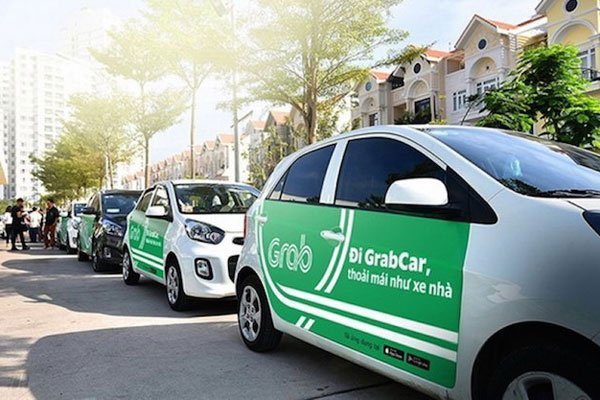Vietnam yet to impose preventive measures on Grab takeover of Uber
The competition authority in Vietnam have yet to make the next moves over a transaction in which Grab acquired Uber Technologies Inc’s Southeast Asian business after asking Grab to report details of the deal.
 |
|
Grab taxicabs are seen on a street in Vietnam. The country’s competition authority has yet to make a new move to prevent possible economic concentration following Grab’s acquisition of Uber |
The Vietnam Competition Authority under the Ministry of Industry and Trade on March 27 asked Grab to report the deal in line with the Law on Competition no later than April 3 to see if the takeover infringes economic concentration rules that may kill competition. The department explained that the deadline has yet to come.
Experts with experiences in cases related to competition and monopoly said the department or the National Competition Council can impose administrative measures to prevent the two firms from violating competition regulations although the deadline has not passed.
According to the Law on Competition, Grab and Uber are given time to prove that they do not violate the law. If competent agencies wrongly impose administrative measures, these enterprises can file a lawsuit against State management agencies for compensation.
Meanwhile, Singapore’s and Malaysia’s competition agencies have adopted interim measures to prevent Grab and Uber from infringing competition regulations.
Particularly, the Competition Commission of Singapore (CCS) last weekend announced its interim measures directions (IMD) on the merger of ride-hailing firms Grab and Uber. CCS also has sent its decision to Vietnam’s competition authority for possible coordination.
CCS required Grab and Uber to preserve or restore their competition and market conditions from March 30. The two firms must not exchange their information on pricing, pricing policies, price formulas, customers and drivers.
In addition, the two ride-hailing firms must maintain pre-transaction pricing, pricing policies and service options, or in other words, maintain the status quo as seen prior to the acquisition. Grab has to make sure that Uber drivers work for the company voluntarily without special requirements or employment contract signing fees.
The two firms have to comply with the IMD unless it is withdrawn by CCS or successfully challenged on an appeal to the Competition Appeal Board.
CCS had based on Article 54 of Singapore’s Competition Act to make the decision as the deal between Grab and Uber has significantly hurt competition in the ride-hailing sector in this country.
Meanwhile, the Malaysian Ministry of Home Affairs has immediately made its response to the deal, saying it would address any anti-competitive behavior in line with the 2010 Competition Act.

